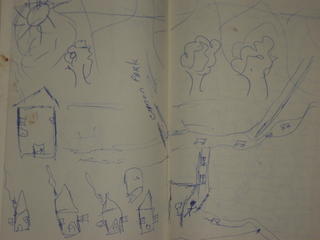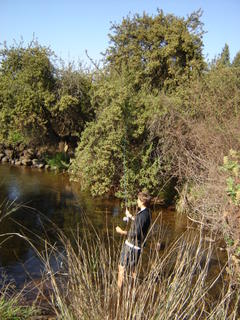Addis Ababa
Yesterday I spent the day running errands and at the National Library looking through their collection of books by European explorers who traipsed up the Nile and through Ethiopia. It was great. I am going back on Monday. I also looked for anything they had on China, which is where I'll be in January. It was funny, being in Ethiopia, looking for books on China, in English. It does make you realize how great a University library system is (things like J-Store and Lexis-Nexis are even more incredible). I do miss that. Not that I am complaining about the nuances of the Ethiopian library...
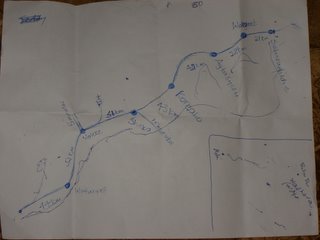
This is a map of the Blue Nile and the area where I am working out plans to do some trekking and where, hopefully, I will get to spend some time.
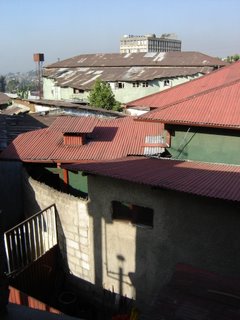
This is a view from out my window in Addis. I hadn't thought about this until now, but I suppose that it looks like most roof tops in the world. I'll try for more interesting Addis pictures later...
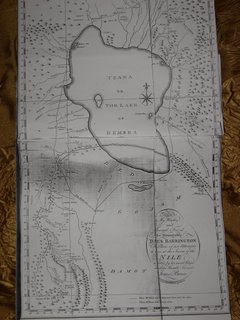
Finally, this is a picture of the map that is included in James Bruce's five volume account of his "discovery" of the source of the Blue Nile. I use quotation marks because the word discovery always strikes me as Eurocentric and also because Bruce was actually beaten there (by 70 years or so) by a Portuguese guy. Anyway, you will see the source down in the bottom left corner.
To get a copy made, I had to explain to the librarian that I wanted a copy and, given the size, it was fine if it was done in two parts. He then took it to the copy woman and spent about five minutes explaining this to her. She finally made the copies, and I paid, but then they spent about five minutes debating what to do because they didn't have the forty cents in change they owed me. I wasn't worried, but this didn't really deter them. Then the librarian had to make a receipt, then the copy woman had to take this receipt and give me a new one. Finally I was given the copies and the receipt (on the receipt my name was spelled Sultt...but I wasn't going to fight it) which I had to present to security at the exit - and where everyone gets patted down. There don't seem to be metal detectors here, so you get patted down all the time. The post office, the library, even crossing the street last night the police were out patting everyone down.


